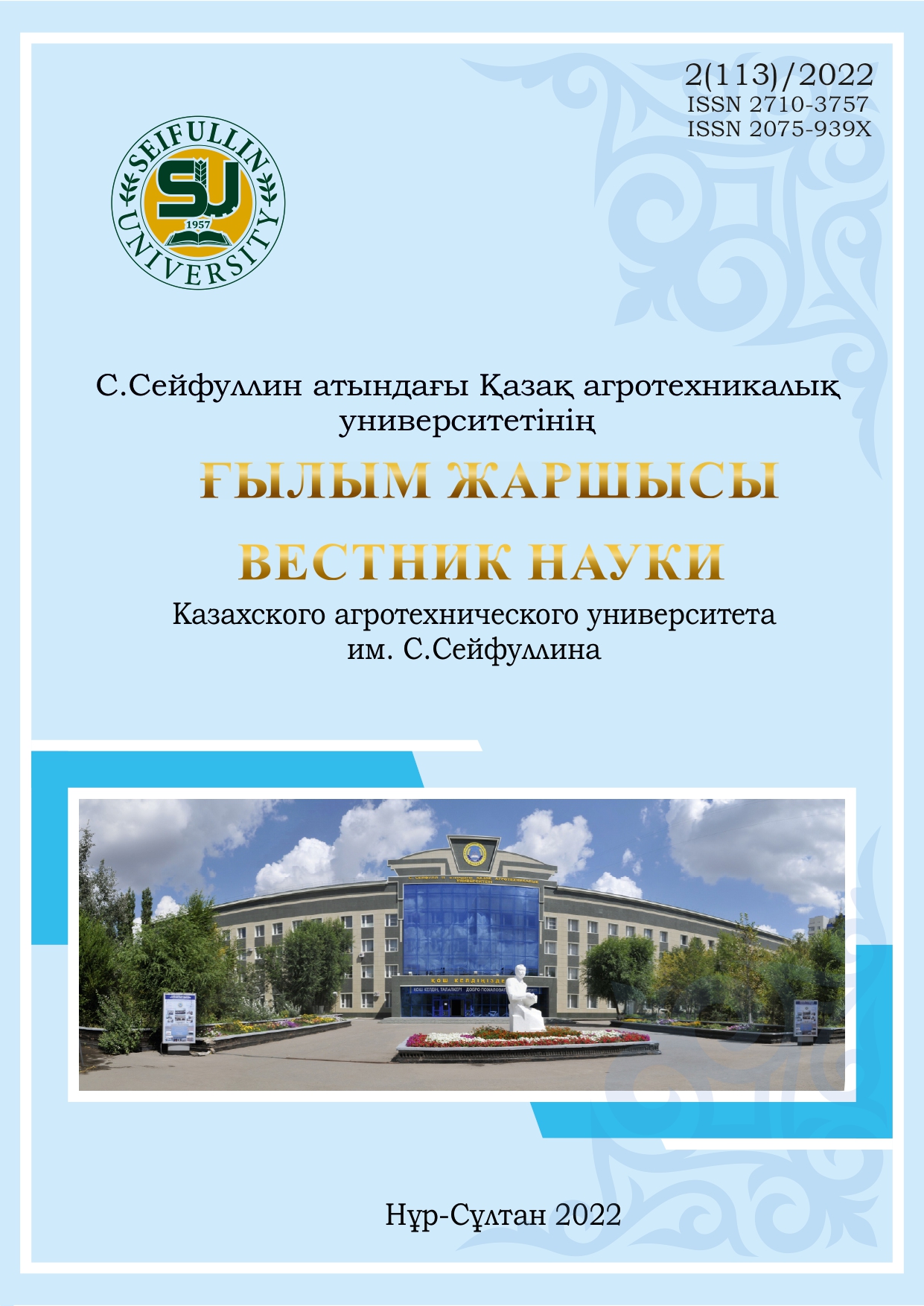STUDY OF THE INFLUENCE OF ACETYLATION ON THE PHYSICAL AND CHEMICAL PROPERTIES OF POTATO AND WHEAT STARCH
DOI:
https://doi.org/10.51452/kazatu.2022.2(113).1033Keywords:
wheat starch; potato starch; amylose; swelling; solubility; acetylation; rheology.Abstract
Acetylation increases the water-resistant properties of starches, which is important when using them to obtain composite biodegradable materials. This article presents the results of studies on the effect of acetylation of native wheat and potato starches with glacial acetic acid on the physicochemical properties of polysaccharides and the study of the potential of using modified starches to obtain a composite mixture of biodegradable films. Comparative studies of the physicochemical properties of polysaccharides and their modifiers have shown that acetylation leads to a decrease in the proportion of amylose in starch, and also reduces the swelling of starch. It was found that the degree of substitution in starches increases only at the initial stages of the acetylation reaction, which is possibly due to the rheology of starches common to starches during swelling and gelatinization. With a decrease in the amount of the acetylating agent, a more uniform course of the reaction is observed, the granules destroyed after absorbing the maximum amount of moisture still have access points for substitution with acetyl groups, the reaction proceeds more slowly, but deeper. The solubility of modified starches is more dependent on the reaction time. The optimal technological parameters for the production of acetylated starches have been determined. So, for potato starch, the following are optimal: the concentration of acetic glacial acid is 1:5, the reaction time is 60 minutes; for wheat starch: concentration of acetic glacial acid 1:7, reaction time 40 minutes.

